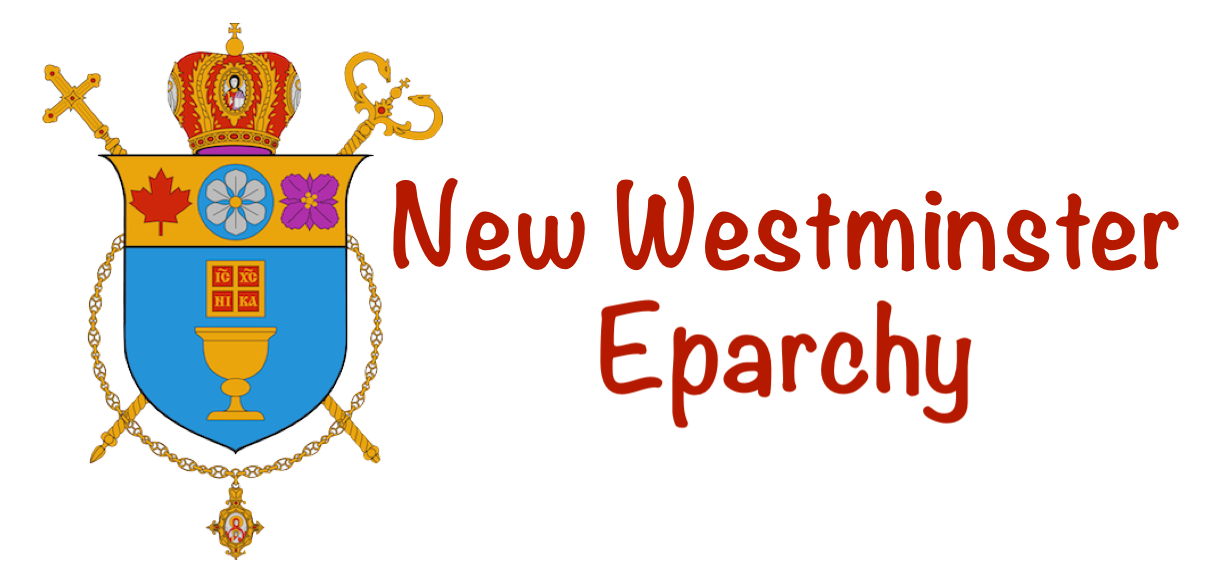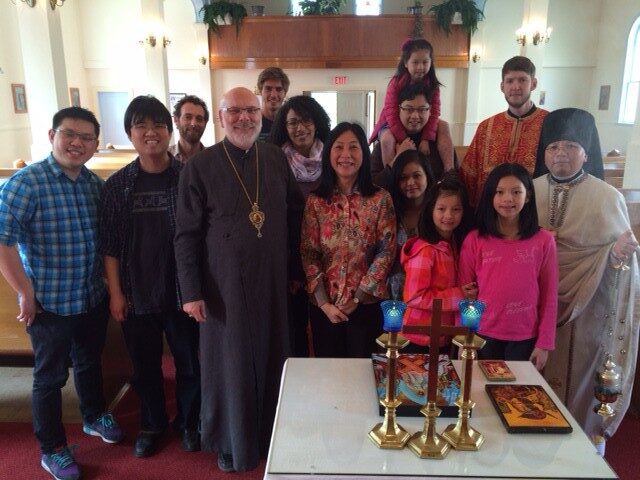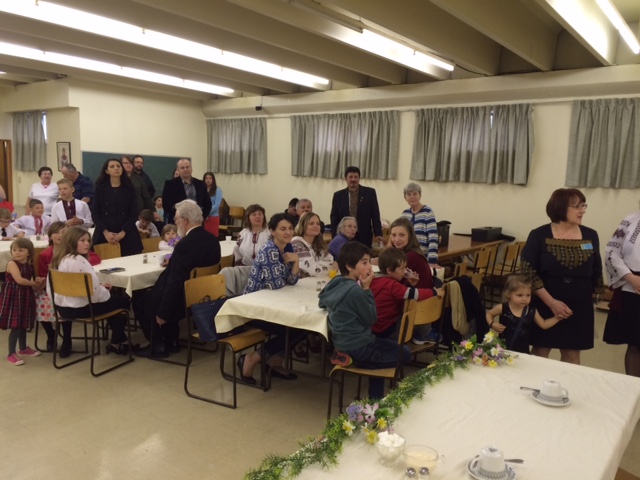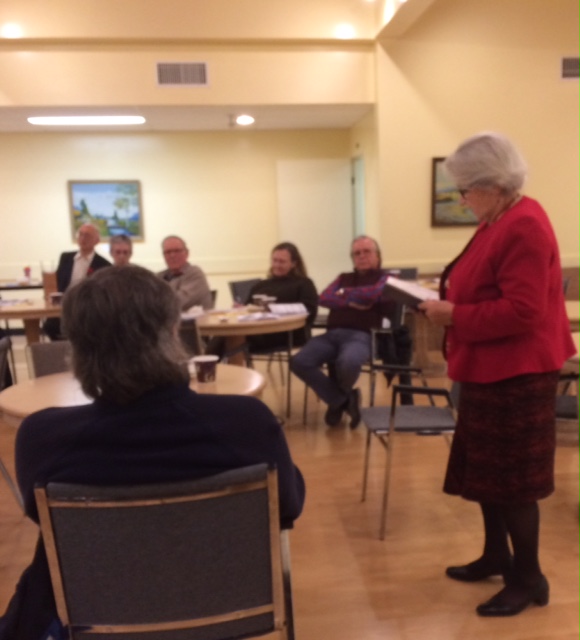Звернення Постійного Синоду УГКЦ після зустрічі зі Святішим Отцем Франциском, Папою Римським
Рим, 6 березня 2016
Війна є розгнузданим злом, радикальним порушенням Божої волі. Вона несе руїну і соціальне каліцтво, глибокий моральний занепад та невимовні людські страждання. Нам, душпастирям, та всім християнам і людям доброї волі Господь пригадує: «Істинно кажу вам: те, чого ви не зробили одному з моїх братів найменших – мені також ви того не зробили» (Мт. 25, 45).
Протягом двох останніх років українці переживають новий вид агресії – гібридну війну, що спрямована на знищення незалежності, економічної стабільності, історичної пам’яті та міжнародного становища. Європейський народ зазнав вторгнення, його землі анексовані, промислові потужності зруйновані, а економіка покалічена. Нападів зазнають свобода, самовизначення, справедливість і добробут народу. Ідентичність українців систематично паплюжить безжальна та добре продумана міжнародна пропаганда, якої в Європі не бачили з часів нацистського та радянського тоталітаризмів.
Чому? Відповідь досить проста. Бо українці голосно заявили про свою Богом дану людську гідність. Вони вирішили розірвати з радянським минулим, що несло геноциди, колоніалізм та імперіалізм, було люто безбожницьким та глибоко корумпованим. У минулому столітті, в якому домінували червоний та коричневий тоталітаризми, Україна стала тим, що історики називають «кривава земля». Близько 15 мільйонів загинули на цій землі протягом двох світових воєн, від національних та релігійних переслідувань, геноцидів, особливо Голодомору (штучного голоду) і Голокосту, воєнного голоду та етнічних чисток. Мільйони провели роки та десятиліття в тюрмах, таборах і засланнях.
Безбожні диктатори намагалися викорінити віру та цінності і знищити культуру та соціальну канву народу, щоб керувати, контролювати та експлуатувати. Держава намагалася контролювати родинне життя. Аборти стали частиною державної політики. Рівень алкоголізму нестримно зростав. Усі Церкви та релігійні організації, що стали на боці переслідуваного народу, перетворилися на мішень репресій. Терор був виразною державної політикою протягом трьох поколінь. Страх закоренився в серці народу. Однак християни стійко переносили переслідування, черпаючи натхнення у словах Господа: «Сказав я вам це, щоб ви мали в мені мир. У світі страждатимете. Та бадьортеся! Я бо подолав світ». (Ів. 16, 33)
Після розпуску Радянського Союзу 1991 року, що відбувся мирно, його республіки, які стали незалежними державами, отримали свободу і почали засновувати демократичні інституції та запроваджувати вільну економіку, поважаючи суверенність і кордони сусідів. Однак у багатьох пострадянських країнах демократія не запанувала, а корупція стала новим способом життя. Для деяких розпад Радянського Союзу виглядав «найбільшою геополітичною катастрофою ХХ століття», і вони заходилися відновлювати минуле. Це призвело до того, що в багатьох пострадянських країнах, включно з Україною, встановилися автократичні, клептократичні режими, які впроваджували репресії. Страждання народу продовжилися. УГКЦ залишалася солідарною з суспільством, пропонуючи йому рецепти із соціального вчення Католицької Церкви.
Господь промовляв до сумління українців і Святий Дух привів сотні тисяч людей, чоловіків і жінок, молодих і старших, стати разом на Майдані в молитві за народ. «Досить! Покінчімо з корупцією та системною несправедливістю!» Утверджуючи гідність людини, народ пережив справжній екуменізм у дії: бажання повної і видимої християнської єдності. Нова єдність, нова солідарність, нова відповідальність заради нової країни. «Оце настановляю тебе я нині над народами й над царствами, щоб ти викорінював і руйнував, вигублював і валив, будував і насаджував». (Єр. 1, 10)
Два роки тому масовим мирним протестом, який супроводжувався молитвою всіх національних релігійних спільнот, – православних, римо- та греко-католиків, протестантів, юдеїв і мусульман, – народ сказав: «Досить! Ми будемо вільними. Ми хочемо жити без страху і корупції, ми хочемо справедливості. У нас є гідність». Люди зрозуміли, що їхня гідність – це не просто конституційна норма, а щось справді святе, частина Божого задуму. Молитви на Майдані, що відбувалися щогодини, допомогли протестувальникам зрозуміти фундаментальну біблійну істину – ми створені на образ і подобу Божу (пор. Бут. 1, 26) Саме вияв солідарності і жертовності, що походить від цього переконання, вразив світ.
Проте не всі поділяли такі переконання. У декого з’явився побоювання, що нове розуміння свободи, гідності, відповідальності та можливість об’єднання з європейськими народами могло поширитися на українських сусідів. Вони розуміли, що це треба було зупинити. І два роки тому весь український народ зазнав покарання рукою північного сусіда, що все ще ностальгує за імперіалістичною величчю радянської спадщини. Своє домінування вони підтримують лише страхом, залякуванням і повним контролем медіа, що супроводжується нехтуванням правами людини і свободою совісті. Покарання українців за їх відчайдушне прагнення бути вільними стало брутальним, цинічним і маніпулятивним. Цьому порушенню права навіть намагаються надати міжнародного виправдання та узаконення і плекають неприязнь та відкидання політичної волі народу України, намагаючись зупинити розвиток громадянського суспільства та встановлення справжнього верховенства права.
Глава Української Греко-Католицької Церкви та члени Постійного Синоду приїхали до Рима, щоб зустрітися з Його Святістю Франциском і розповісти йому про те, чим живуть їхні вірні та весь народ. Глобальна християнська родина та міжнародна спільнота повинні вповні зрозуміти: українці переживають насильницьку зовнішню агресію і потребують моральної підтримки та благодійної допомоги.
За офіційними даними загинуло близько 10 тисяч осіб, неофіційно – більше. Десятки тисяч поранені та покалічені. Війна безпосередньо зачепила п’ять мільйонів осіб, з яких майже половина були змушені покинути свої домівки. Є близько два мільйони внутрішніх переселенців, з яких майже 300 тисяч дітей, близько півмільйона покинули країну протягом двох останніх років. Для людини віри чи доброї волі ці люди не просто статистика – це батько, брат чи сусід, мати, дитина чи друг.
Україна переживає гуманітарну кризу, яка постійно зростає, – найбільшу кризу в Європі після Другої світової війни. Наслідком двох років гібридної війни стало те, що сотні тисяч пережили глибокий травматичний шок, якого позбуватимуться довгі десятиліття. Майже все населення відчутно збідніло. Національна валюта втратила дві третини своєї вартості за два роки. Нам необхідні економічні реформи, які є умовою міжнародної фінансової допомоги, включають підвищення цін на тепло для населення на 350 відсотків. Важливо пам’ятати, що Україна має доволі холодний клімат…
…Однак у людей є теплі та гостинні серця. Вони прийняли близько двох мільйонів переселенців. Щедрість волонтерів справді вражає: у різних кутках країни вони опікуються пораненими, травмованими, тими, хто втратив домівки, вдовами та сиротами. У цьому контексті свідчення багатьох українців надихає. Однак тривала агресія посилює злидні. Смерті не припиняються.
Сьогодні Європа переживає складні виклики щодо самої її суті. Для кого знайдеться місце в її серці? Скільки там місця? Не так просто знайти притулок для великої кількості біженців. Досі Європа була щиросердною, щедрою і гостинною. Зрештою, близькосхідні біженці тікають переважно до європейських та інших країн, де християнські традиції та соціальна доктрина стали фундаментом для поваги людської свободи та прав. Однак підтримка більше від мільйона нових біженців стала великим викликом для ЄС, річний бюджет якого в 400 разів більший за бюджет України, яка без особливого галасу та метушні за останні два роки прийняла два мільйони переселенців. Християнська спадщина Європи зараз переживає складний іспит. Якою буде наша відповідь у Рік Божого милосердя, що його проголосив Святіший Отець?
Під час нашого візиту до Рима ми пояснювали, що відбувається в Україні, розповідали про агресію та гібридну війну і голосили про страждання мільйонів невинних людей. Церква засуджує звірства, викрадення, ув’язнення і тортури супроти громадян України на Донбасі і в Криму, особливо супроти кримських татар, а також нехтування правами та гідністю мільйонів.
Як християни, ми готові пробачати і шукати миру. Ми проголошуємо та активно підтримуємо мир і прощення. Однак справжнього миру можна досягнути лише тоді, коли припиниться загарбання та війна.
Ми перебували в Римі напередодні 70-ї річниці Львівського псевдособору. Цей собор був організований сталінським режимом 8-10 березня 1946 року, щоб ліквідувати Українську Греко-Католицьку Церкву, і проведений без жодного греко-католицького єпископа, адже всі вони на той час були ув’язнені. Незважаючи на побиття, тортури та погрози про довгі вироки та смертну кару, усі єпископи відмовилися зрадити вірність Папі. У результаті УГКЦ стала найбільшою Церквою у світі, що перебувала поза законом. Її власність було передано Російській Православній Церкві або конфісковано для використання у світських цілях. Сталін хотів обірвати всі зв’язки українських греко-католиків з єпископом Рима. Багато єпископів померли у в’язницях чи в таборах. Сотні священиків та богопосвячених осіб і десятки тисяч вірних розділили їхню долю.
Проте наша надія і «допомога наша в імені Господа, що створив небо й землю» (Пс. 124 ,8). Сьогодні вже немає Радянського Союзу, і ті, колись могутні, переслідувачі вже стали історією та пішли на вічний суд. Натомість мученики беатифіковані, а їх духовні діти зростають духом і чисельністю. «Ми знаємо, що тим, які люблять Бога, – покликаним за його постановою, усе співдіє на добро». (Рим. 8, 28) Господь благословив страждання та жертви, щоб сповнити свій задум. На початку ХХ століття – століття жертви – УГКЦ мала три західноукраїнські єпархії і три єпископи. Зараз є 33 єпархії і екзархати з 53 єпископами на чотирьох континентах. Якщо 1989 року, коли Церква виходила з підпілля, залишилося лише 300 священиків із трьох тисяч, що були перед війною, зараз ми знову маємо три тисячі, середній вік яких 38 років. Церква в Україні жива та динамічна. Ми приїхали до Рима, щоб засвідчити вірність відродженої Церкви Святішому Отцеві та нашу єдність із Вселенською Католицькою Церквою.
У часи переслідування УГКЦ своєю кров’ю показала солідарність із Єпископом Рима і світовою католицькою спільнотою. Зараз, у Рік Божого милосердя, час Католицькій Церкві в солідарності принести цілющий бальзам милосердя до своїх братів і сестер, котрі страждають в Україні. Український народ доводить свою відданість європейським цінностям гідності людини та верховенства права. Зараз час Європі зрозуміти: якщо вона не обстоюватиме ці цінності в Україні, то вони опиняться під загрозою на всьому континенті. Зараз час підтвердити, що народи Європи та різні релігійні спільноти вміють захищати і цінувати найдорожче, – час побачити, чи свободу і добробут, якими насолоджуються західні країни, можна розділити повніше з багатостраждальним народом.
Українська Греко-Католицька Церква невпинно молиться і підтримує мир, і в Римі її керівництво звернулося до Святішого Отця і світу з проханням допомогти припинити війну та полегшити гуманітарну кризу, спричинену російською агресією проти України. Для українців, які належать до різних Церков та релігійних організацій і навіть невіруючих, Святіший Отець є глобальним моральним авторитетом, який говорить правду. Цей голос правди є особливо важливим для українців, які сьогодні страждають. Якщо люди не чують чи не розуміють цього голосу, то вони заплутуються, непокояться і почуваються забутими.
«Народ страждає, Ваша Святосте, і чекає Ваших обіймів, активної підтримки католицької спільноти та людей доброї волі», – це було наше слово. Папа Франциск дав чітко зрозуміти, що діятиме. Важливо також, що напередодні сумної річниці Львівського псевдособору Святіший Отець щиросердно наголосив на вірності та героїчному свідченні поколінь греко-католиків. Він підготував пастирське послання щодо подій березня 1946 року і запевнив, що ніхто не вирішуватиме екуменічні питання ціною Східної Католицької Церкви.
Ми сподіваємося, що Його Святість ініціює та підтримає нові кроки, щоб допомогти полегшити страждання мільйонів українців, що він говоритиме від їхнього імені та сприятиме міжнародній підтримці. УГКЦ готова допомагати у відповідальному, прозорому та екуменічному адмініструванні міжнародної допомоги, служачи українському суспільству, не зважаючи на національність, мову, політичну чи релігійну приналежність. Ми готові співпрацювати з іншими урядовими та неурядовими організаціями, щоб полегшити страждання, забезпечуючи короткотермінові та довготермінові потреби тих, кого зачепила гуманітарна криза, спричинена агресією проти України. Досить страждань! Їм можна запобігти. Їх можна зцілити. Зробімо Рік милосердя реальністю для українців!
+Святослав,
Верховний Архиєпископ Києво-Галицький,
Глава і Отець УГКЦ
+Володимир (Війтишин),
Митрополит і Архиєпископ Івано-Франківський
+Ярослав (Приріз),
Єпископ Дрогобицький
+Кен (Новаковський),
Єпископ Нью-Вестмінстерський
+Борис (Ґудзяк),
Єпископ єпархії Святого Володимира Великого в Парижі
+Богдан (Дзюрах),
Секретар Синоду Єпископів УГКЦ


































Recent Comments